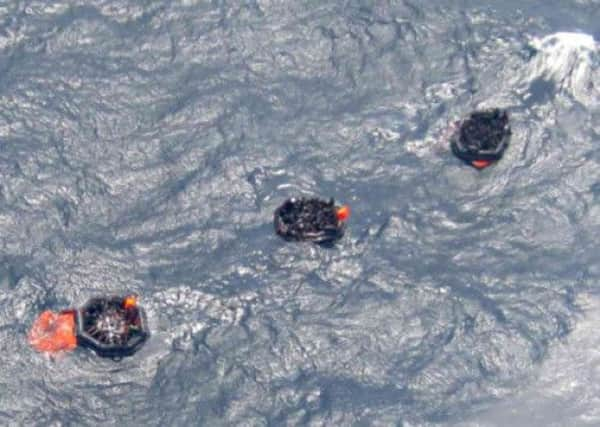Scots shipping boss is linked to previous sinking


Captain Peter Sharp, originally from Shetland, was arrested earlier this month after a commission of inquiry into the sinking of the MV Rabaul Queen alleged he had demonstrated a flagrant disregard for human life and safety standards before the vessel went down.
The inquiry reported that the ferry was significantly overcrowded – it is still not known exactly how many people were on board with early estimates of more than 500 – and was not designed for the rough seas it encountered when it capsized and sank on 2 February, 2012, in the Solomon Sea off the coast of Papua New Guinea.
Advertisement
Hide AdAdvertisement
Hide AdIt has since emerged that in August 1993 another vessel operated by Sharp, the MV Kris, also capsized and sank with the loss of five crew members. An inquiry into that sinking reported that, as with the Rabaul Queen, he had not ensured the vessel had enough crew on board and those present were not properly trained. No charges were brought against Sharp following the loss of the MV Kris.
However, papers released by the commission of inquiry into the loss of the Rabaul Queen have highlighted that the fleet of vessels operated by Sharp were involved in ten other major incidents between 2002 and 2009, when ships in his fleet ran aground or suffered serious engine failures.
Speaking from her home in Australia, Sharp’s sister Lucinda Speir, who has not spoken to her brother for many years, said: “This is not the first ship of Peter’s that has sunk.
“The first that sank did so with the loss of all on board.
“There is no welfare in Papua New Guinea and the loss of the head of the family is catastrophic.”
The commission of inquiry described the conditions aboard the Rabaul Queen on her final fatal voyage as “inhumane”. It has also since emerged that Sharp is the grandson of the British captain at the helm when Britain’s two worst ever maritime disasters occurred.
Captain Rudolph Sharp survived the sinking of the Lancastria in 1940, which went down after being bombed by German aircraft in the Bay of Biscay.
An estimated 4,000 lives were lost when the former Cunard liner sank in just 20 minutes.
Prime Minister Winston Churchill later banned all media coverage of the incident, fearing the negative impact it would have on wartime public morale.
Advertisement
Hide AdAdvertisement
Hide AdA number of survivors of the Lancastria, which was heavily overcrowded, criticised Captain Sharp for not manoeuvring the vessel as the air attack began, instead choosing to keep the ship at anchor. Scots survivor Charlie Napier, from Inverurie, said: “She was a sitting duck. When I later heard that the senior officers of the Lancastria had claimed there were much fewer people on board than was the case, I realised they were just trying to cover themselves.”
Two years later, Captain Rudolf Sharp was on the bridge of the RMS Laconia when it was torpedoed by a German U-Boat.
More than 1,600 people, including Captain Sharp, were lost when that vessel sank.
His grandson, Peter, has been released on bail but ordered to surrender his passport and will appear before Kokopo district court on 26 September.
Sharp, who has been subjected to intense public and media criticism, told local reporters: “She was a beautiful ship and she should not have gone. Ships are our life and carrying passengers is our life.”